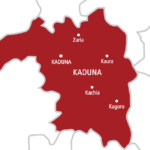Nigerian financial services sector regulators and operators must be taking copious notes for lessons from the bank scam and attendant protests that are rocking the Chinese economy and indeed the rest of the world.
Protests broke out and spread following the arrest of people described as members of a “criminal gang” who were accused of taking control of local banks in central China.
The gang was said to have made illegal transfers through fictitious loans using their shareholdings and “manipulation of executives” — to effectively take over several local banks as far back as 2011, reports quoted police as saying.
Against the backdrop of recent cases of wonder banks and Ponzi schemes that have erupted in Nigeria recently, the China experience is pointing Nigerian regulators to the drawing table once more, to tighten their rules and sharpen enforcement skills. Some popular Ponzi schemes that have operated in Nigeria include MMM, Twinkas, Loom, iCharity Nigeria, Loopers Club, MMM Cooperation, Help Naija, Paradise Payment, NNN Nigeria.
Like the wonder banks, the Ponzi schemes offer attractive rates of return on investments that have no bearing with the reality, and are often set up to deceive the uninformed.
Given the preponderance of such cases, there is an urgent need for not just Nigerian bank customers, but also the banks to be conscious of scams and ensure due diligence before they leap.
Speaking with Daily Trust, Mr. Yadinma Onwu, the Executive Vice Chairman of Funds Matrix and Asset Management Limited noted; “There are too many fraudulent platforms around, including Nigeria and this is not limited to the banking sector. It traverses the capital market. Notwithstanding the increased agility of the Central Bank of Nigeria and the Securities & Exchange Commission in monitoring and sanitising the system for these Ponzi and fraudulent platforms, the ultimate responsibility still lies with the public to become aware and conscious of the rising and varying tricks of unsuspecting entities disguising as financial services firms and offering irresistible investment offers.”
According to Mr. Isaac Olorungbon, the Chief Executive Officer of Deeptrust Asset Management Limited, “The first flashpoint is that most fraudulent entities are not registered with any regulatory authorities. So, be sure you are dealing with regulated entities, as the oversight of the regulators provides the first layer of protection for you.”
Secondly, he pointed out that it is important that the public becomes conscious of the reality and stops chasing shadows in unrealistic returns being promised by the shadow banks and scam platforms, who promise often impossible returns on investment to lure their victims.
Interestingly, just five days ago, the Central Bank of Nigeria took proactive steps to strengthen awareness and knowledge of the Nigerian consumers in the use of digital financial services through its new guidelines, as it hopes to support the Nigerian public to catch up with the fast-paced development of Digital Financial Services in the country. The guidelines issued to operators, including deposit money banks, merchant banks and other financial institutions reinforce the responsibility of financial services providers in educating and protecting consumers along the value chain.
The regulator declared this in the guidelines it said are meant to take care of identified gaps in consumer knowledge and practices in emerging digital financial services.
The step formed part of the regulator’s efforts to deepen financial inclusion while also protecting the consumers and broader industry integrity against fraud and data piracy, it explained in a statement it issued on Friday, July 8, 2022, with the caption ‘Digital financial services awareness guidelines’.




